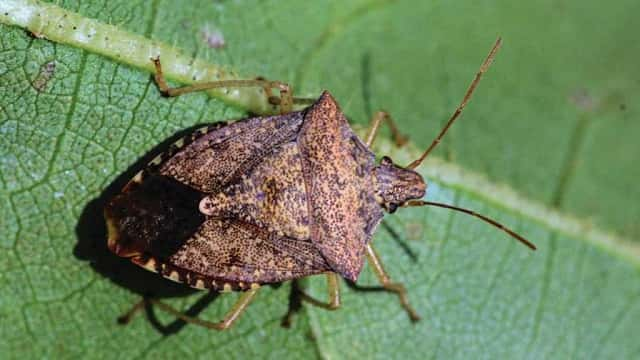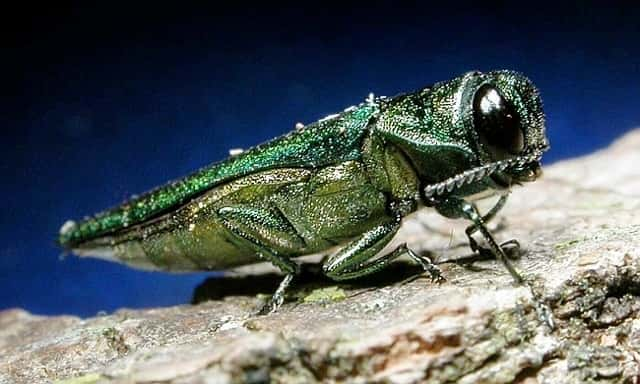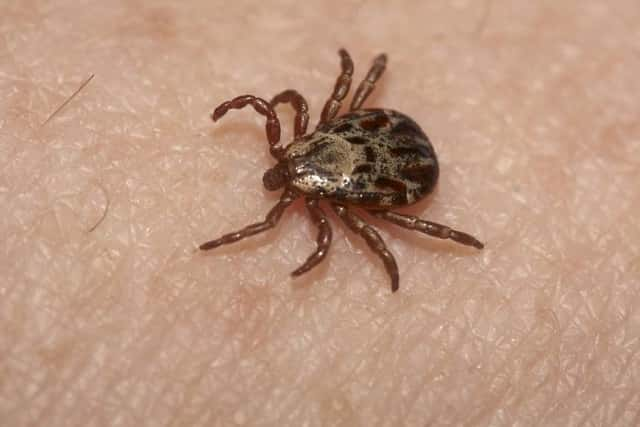
I’m sure most of you remember when the polar vortex plunged into the midwestern and northeastern United States at the end of January. Our area wasn’t spared either with very cold temperatures over several days. The polar vortex also brought with it travel disruptions, power outages and a number of injuries and at least 23 fatalities in other parts of the country. But, despite the many negative impacts associated with the recent polar vortex, the record-breaking cold may have killed some harmful, invasive species, according to a press release by the National Pest Management Association. “While most insects will be equipped to survive a short period of very cold weather, like the recent polar vortex, it’s likely some will die from this extreme weather event,” said Dr. Brittany Campbell, entomologist with the NPMA. For example, the polar vortex may have killed as much as 95 percent of the stink bugs that hadn’t found shelter to stay warm this winter, a Virginia Tech research experiment estimates.

According to Campbell, pests in regions of the country that typically do not experience extremely low temperatures will most likely be impacted the most. Some insects are even able to withstand temperatures well below zero F, with the limit for many insects that can “superfreeze” being typically around minus 30 F. “That said, we won’t be entirely certain of the impacts until spring occurs,” Campbell said. Despite their ability to survive short periods of cold weather, sustained frigid conditions, like those brought about from the most recent polar vortex, could be effective at killing off even some well-prepared pests. Invasive species in the Northeast, such as the emerald ash borer and southern pine beetle, didn’t likely to survive the winter cold, but New York City cockroaches and bed bug populations were likely not affected, according to the NPMA press release.

Some species of springtails, mites, spiders and ticks will avoid freezing temperatures rather than have physiological tolerance, so these species may be impacted by these extreme temperatures in the southernmost impacted areas. “Also, even if adult pests freeze, they may have already laid eggs which will hatch when the weather warms,” NPMA warns in the press release. Areas that have had harsh winter weather are most likely looking forward to the summer months that are filled with sunshine and warmth. But with sunny, warm weather comes bugs, ticks included. The common thought is that a harsh winter will mean that ticks won’t be as bad as they could be in the summer. However, experts say this isn’t entirely true. Cold weather only kills about 20 percent of the tick population, according to a newsletter from the Pennsylvania Department of Conservation and Natural Resources (DCNR). In controlled labs, ticks die in the temperature range of minus 2 and 14 F. Joyce Sakamoto, a research associate in the department of entomology at The Pennsylvania State University, said this doesn’t take into consideration other factors that a natural environment would have.

“The blacklegged tick or the deer tick that everybody is concerned about, that one can handle the cold. It has sort of an antifreeze ability, so that it can withstand cold temperatures,” Sakamoto said. Sakamoto said what is more likely is ticks will burrow themselves into the leaf litter and the soil, which acts as an insulation. If there is a consistent layer of snow, it can also act as an insulation where adult ticks will still be able to survive winter. Some studies have shown that what kills ticks off isn’t just that it gets too cold, but the amount and the severity of temperature changes. This is because the warmer it gets, the more ticks will come out. But if it suddenly gets cold, it might kill them before they can get back to warmth and safety. That is exactly what the long range models are showing. After our mild and wet February, it is looking more and more likely that we will plunge back into winter as we head into the first of March. While most of us are now hoping for spring, the coming winter like temperatures may have the good side effect of killing off some of the mosquitoes and ticks. We can only hope.





